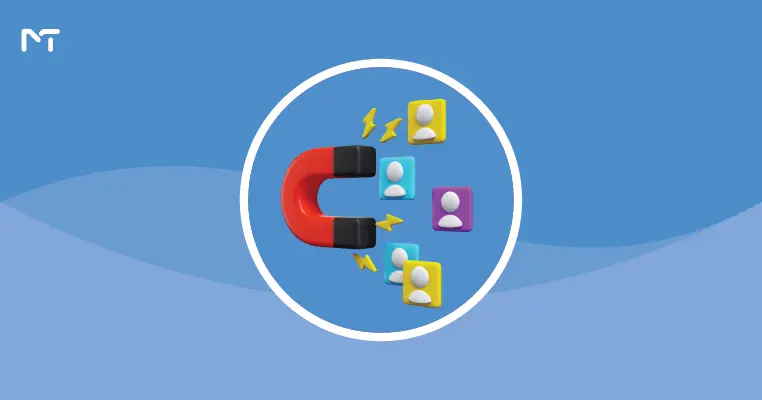In this article, you’ll learn how to get user info from a Telegram bot using Telegram’s Bot API, best practices, and real use cases. Whether you’re developing a smart assistant, automating a business process, or building analytics tools, accessing user data like names, usernames, IDs, and languages helps personalize and scale your services. We’ll also explore important legal considerations, coding examples, comparison tables, and answers to frequently asked questions — so you can build smarter, more effective Telegram bots in 2025 and beyond.
Why Retrieve User Info from a Telegram Bot?
Getting user info from a Telegram bot allows you to:
- Personalize greetings and messages
- Filter or segment users based on language or region
- Track and analyze user behavior for better decisions
- Save user data for future interactions or analytics
- Provide gated access to exclusive features
These benefits make your bot more intelligent, useful, and tailored to your audience.
What User Info Can You Access from Telegram Bots?
Telegram shares public information about users when they interact with a bot. Here’s what you can typically access:
| Information | Available In Private Chat | Available In Group (If Interacted) |
|---|---|---|
| User ID | ✅ | ✅ |
| First Name | ✅ | ✅ |
| Last Name | ✅ | ✅ |
| Username | ✅ | ✅ |
| Language Code | ✅ | ✅ |
| Profile Photo | ✅ (with extra request) | ✅ (with extra request) |
❗ Note: You cannot access phone numbers or email addresses unless the user shares them explicitly via button or web app.
How Telegram Bots Receive User Info: Polling vs Webhooks
Before coding, it’s important to understand the two main ways bots receive updates:
Polling
Your bot continuously checks Telegram servers for new messages. Easier to set up for small projects.
Webhook
Telegram sends data directly to your server. Better for performance, speed, and scalability in production.
🔧 Choose webhook if you’re building a professional or public-facing bot. For testing or local development, polling works fine.
Setting Up Your Telegram Bot (Step-by-Step)
Before you can start retrieving any user information, you need to have a working Telegram bot. In this section, we’ll guide you through the initial setup so that your bot can be ready to interact with users and respond to their commands. These steps are essential before you can implement any code to fetch user data.
1. Create Your Bot Using BotFather
- Open Telegram, search for @BotFather
- Run
/newbotand follow instructions - Save the generated bot token
Once you create your bot with BotFather, many developers choose to Buy Telegram Bot Start Service to quickly launch and customize their bots without hassle. This service helps speed up the initial setup, allowing you to focus on integrating features like user info retrieval and improving bot interactions effectively.
2. Set Up a Local Script or Server
You’ll need a library to interact with the Bot API. Some popular ones:
- Python:
python-telegram-bot - JavaScript:
Telegraf,node-telegram-bot-api - PHP:
php-telegram-bot
Developing a Telegram bot opens up many opportunities for automating tasks and improving user engagement. By choosing the right development approach, you can create bots that respond instantly, handle multiple users simultaneously, and integrate smoothly with other services. This flexibility makes it easier to build customized solutions tailored to specific needs, from customer support to interactive games.
How to Get User Info from a Telegram Bot Using Python
Here’s a basic Python script using python-telegram-bot to extract user info when someone types /start:
pythonCopyEditfrom telegram.ext import Updater, CommandHandler
def start(update, context):
user = update.message.from_user
user_id = user.id
first_name = user.first_name
username = user.username
lang = user.language_code
context.bot.send_message(chat_id=update.effective_chat.id,
text=f"Hi {first_name}, your user ID is {user_id}.")
updater = Updater("YOUR_BOT_TOKEN")
updater.dispatcher.add_handler(CommandHandler('start', start))
updater.start_polling()
This code helps you quickly gather user data and reply with a personalized message.
Real-Life Use Cases for Telegram User Info
Let’s look at how getting user info from a Telegram bot helps in the real world:
- 🧾 Subscription bots: Track and store user IDs for content delivery
- 🌍 Language-based content: Send English content to
enusers and Persian tofausers - 📊 Analytics: Count active users, new users, or segment data by group/channel
- 🔐 Premium access: Allow only specific usernames or IDs to access locked features
- 👋 Personal greetings: Welcome returning users by name
Best Practices for Handling Telegram User Info
To keep your bot ethical and compliant, follow these tips:
Ask for Consent
Be transparent about the data you store and how you use it. Consider including a short privacy message.
Secure Your Data
Use encrypted databases and avoid saving unnecessary info. Never log tokens or private chats in plaintext.
Comply with GDPR and Data Laws
If your users are in the EU or similar regions, store data only with consent and allow deletion upon request.
Limitations When Retrieving Telegram User Info
Even though Telegram’s API is powerful, bots can’t access user data unless:
- The user initiates the conversation or interacts with the bot
- The bot is added to a group and the user interacts with it
- The user shares extra data via buttons (e.g., contact info button)
Always work within Telegram’s terms of service to avoid your bot being restricted or banned.
Advanced Tips: Making the Most of User Info
After setting up the basics, you can unlock more powerful features by using user data creatively. These advanced tips help you enhance your bot’s functionality, build deeper engagement, and make smarter decisions based on user behavior and preferences. Below are several practical ways to get more value from the user info you collect through your Telegram bot.
Track User Activity Over Time
Store timestamps or counts for each user to see how active they are.
Link Telegram Users to Web Apps
Using Telegram login widgets allows you to seamlessly connect your Telegram users with your online platforms. This method not only streamlines user authentication but also enriches the information your bot can access. By implementing features that connect your Telegram bot to a website, you can gather more detailed user data securely and offer personalized experiences. Moreover, this integration enhances user engagement by linking chat interactions with your web dashboards, making your bot more versatile and data-driven.
Combine with Inline Queries
When a user uses inline mode in a group, your bot can still access their basic info, which helps in public interactions.
Simple Flow Diagram: How User Info Is Retrieved
plaintextCopyEditUser → Sends command → Telegram forwards update → Bot receives info → Bot processes + stores → Reply to user
This simplified flow helps understand where user data fits into your bot’s architecture.
Frequently Asked Questions (FAQ)
Q: Can I get a user’s phone number?
A: Only if the user shares it voluntarily by tapping a special button (request_contact).
Q: Why is the username sometimes missing?
A: Not all users set a username. Rely on user.id as a unique key instead.
Q: Can I get info from users who never messaged the bot?
A: No. Telegram only sends user info after a direct interaction.
Conclusion
Learning how to get user info from a Telegram bot is a key skill for modern developers and bot creators. Whether you’re sending personalized greetings, storing analytics, or building access systems, knowing how and when to retrieve user data gives your bot real-world power. Remember to follow ethical guidelines, store only what you need, and keep user trust at the center of everything you build. With the right setup, your bot will not only respond better—but grow smarter.








Leave a Reply